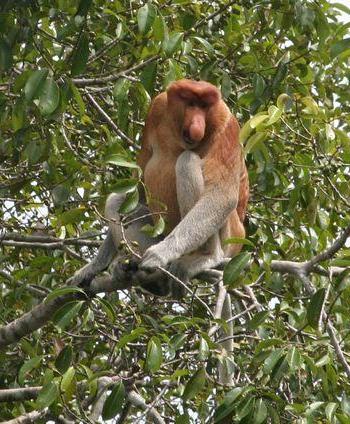
Earth Protect Blog
- Font size: Larger Smaller
- Hits: 1850
- 0 Comments
Scientists condemn current development plan in Kalimantan
Scientists with the Association for Tropical Biology and Conservation (ATBC) have released a resolution opposing the current development plan for a road and bridge crossing Balikpapan Bay in the Indonesian state of Kalimantan. The resolution states that the plan threatens not only the fragile ecosystems within the bay, but of the nearby mangroves as well as the Sungai Wain forest and its watershed, vital for local industry and people. According to ATBC, the plan could be easily remedied by officials picking an alternate route, which is also favored by locals since it would be 80 kilometers shorter.
"This bridge and road would imperil some of the most important wildlife habitats remaining in West Kalimantan. Given that there are clearly viable alternatives to the bridge project that are far less harmful, it’d be utterly illogical for it to proceed," said William Laurance, one of the world's foremost tropical conservationists and scientists. Laurance is currently a Distinguished Research Professor at James Cook University.
 Proboscis monkeys are endemic to Borneo. They require both mangroves and rainforest to thrive. Photo by: Rhett A. Butler. |
The resolution by ATBC, the world's largest scientific organization devoted to the study of tropical ecosystems, warns that the project would threaten a variety of key species in the area, including dugongs, Irrawaddy dolphins, saltwater crocodiles and green sea turtles in the bay; proboscis monkeys and fish in the adjacent mangroves; as well as Sunda clouded leopards, sun bears, white-fronted langurs, and a reintroduced community of Bornean orangutans in Sungai Wain forest. The forest is also home to over 250 bird species making it a part of the Balikpapan-Samarinda Important Bird Area (IBA). Given the wealth of wildlife, primatologist Stanislav Lhota told mongabay.com in January that the area is ripe for sensible eco-tourism projects.
However, warns the ATBC resolution, all of this could be lost if developers cut a road along the forest's edge, allowing people easier entry to its riches: "uncontrolled access to [the Sungai Wain forest] will almost certainly result in a major increase in settlements, farming, illegal logging, and land speculation that will threaten native habitats and lead to increased fires and wildlife poaching."
As important as the area is for biodiversity, it is equally important for local people. The Sungai Wain forest provides one of the region's only undiminished watersheds used for in local industry, while "the bay itself includes a variety of freshwater, brackish, and mangrove habitats that provide vital breeding areas for commercially important fish and crustacean species that help to sustain local fisheries," according to the resolution.
ATBC endorses an alternate route that would avoid the mangrove stands and the Sungai Wain forest altogether and have less impact on the bay. Local officials have also come forward in favor of this route given that it is significantly shorter (80 kilometers) than the current one.
The resolution "urges the Federal Government of Indonesia and the Provincial Government of East Kalimantan to join with local authorities to support" the alternate route.
The island of Borneo has lost nearly 50 percent of its forest cover since the 1970s, an impact that has been felt in Kalimantan—the largest area of Borneo—as much as any other region on the island. This staggering loss of forests has jeopardized the future of innumerable species; produced vast greenhouse gas emissions; and diminished important 'ecosystem services', such as clean water, pollination, food and fish production.
"Most coastal and estuarine ecosystems of West Kalimantan have been devastated, and so it’s vital to protect the few ecologically viable areas that remain," Laurance says.
For a more detailed look at the issue of development on Balikpapan Bay: Bridge development in Kalimantan threatens rainforest, mangroves, and coral reef.
Comments
-
Please login first in order for you to submit comments













